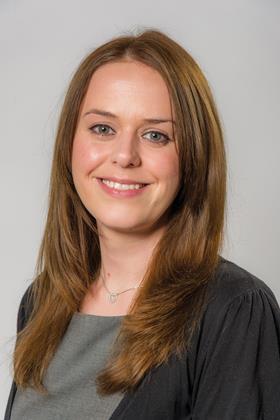Childhood sexual abuse is one of society’s most heinous crimes. Due to the very personal nature of the harm caused, the profound impact on a survivor’s emotional and psychological wellbeing can be devastating and infiltrate every aspect of their life.

Perpetrators tend to be highly manipulative, placing themselves in positions of power and trust to exploit their victims. The covert nature of their abuse, often cloaked in secrecy, can lead abused children to suffer feelings of shame, humiliation, guilt, fear and confusion. This can erode a child’s dignity and self-worth, negatively affecting their education and interpersonal relationships.
As survivors transition into adulthood, many are haunted by traumatic memories and tormented by questions of self-blame and guilt about not disclosing the abuse. The burden of keeping such a secret over many years takes its toll. Many survivors grapple with issues of trust and struggle to form relationships both in their personal and working lives. This can lead to debilitating psychiatric disorders such as depression and post-traumatic stress disorder.
For a survivor of childhood sexual abuse, an apology can be transformative and serve as a pivotal moment of validation and healing. However, at present there is no legal requirement that an apology be offered to survivors either by the individual perpetrator or the institution on whose watch the abuse took place. ‘Sorry’ is such a simple word, yet it carries immense weight for survivors of childhood sexual abuse. It serves as an acknowledgement of the pain they have suffered and restores their dignity, along with the power and control lost in childhood. Saying sorry is a part of everyday life, so why is such a normal human act so rarely extended to them, and in some cases outright denied?
The main reason seems to be fear of legal repercussions – that an apology will be considered an admission of guilt and lead to successful litigation against them. Ironically, it is often the absence of remorse and apology that can drive a survivor to feel they have no option but to seek validation and justice through the courts.
The Compensation Act 2006 attempted to make it easier for wrongdoers to offer apologies by affording them an element of protection. The act states: ‘An apology, an offer of treatment or other redress, shall not of itself amount to an admission of negligence or breach of statutory duty.’ Yet nearly 20 years on, apologies to survivors of abuse remain the exception rather than the rule.
Perhaps a reason for this is that the act is too narrow in that it only refers to negligence and breach of statutory duty, without making specific reference to vicarious liability. Survivors often view institutions as complicit in facilitating abuse and claims can be brought against institutions under the law of vicarious liability, where the institution and the abuser were in an employer/employee relationship and the abuse was closely connected to the role the institution entrusted to the abuser.
Yet offending institutions rarely extend apologies, even after they have settled a survivor’s civil claim. In fact, requests for an apology are often refused, leading to anger, frustration and powerlessness which ultimately exacerbate a survivor’s trauma, leaving them without the justice they so rightly deserve.
By contrast, the Apologies (Scotland) Act 2016 is broader in its application and makes it easier for a wrongdoer to offer an apology, without fear that such an apology could be used against them in civil proceedings. It states: ‘In any legal proceedings to which this act applies, an apology made (outside the proceedings) in connection with any matter is not admissible as evidence of anything relevant to the determination of liability in connection with that matter, and cannot be used in any other way to the prejudice of the person by or on behalf of whom the apology was made.’
As the current legal framework in England and Wales leaves the offering of an apology largely in the control and at the discretion of the wrongdoer, it was welcome news on 8 April when the government unveiled plans to launch a consultation to change the law to remove barriers to apologising. However, if changes in the law are really going to be a catalyst to encouraging wrongdoers, including institutions, to apologise, such legislation needs to provide a clear definition of what amounts to an apology. It also needs to be broadened to encompass vicarious liability, aligning with Scotland’s approach to apologies.
The benefits of a sincere apology are clear and cannot be overstated. An apology not only acknowledges a survivor’s harrowing experience, it also demonstrates understanding, empathy and a commitment to righting wrongs.
The hope is that such apologies will not only reduce animosity between parties during proceedings and lead to earlier resolution of these claims, but most importantly provide a survivor with validation, closure and a path towards healing.
Abbie Hickson is a senior associate at Bolt Burdon Kemp, London































No comments yet